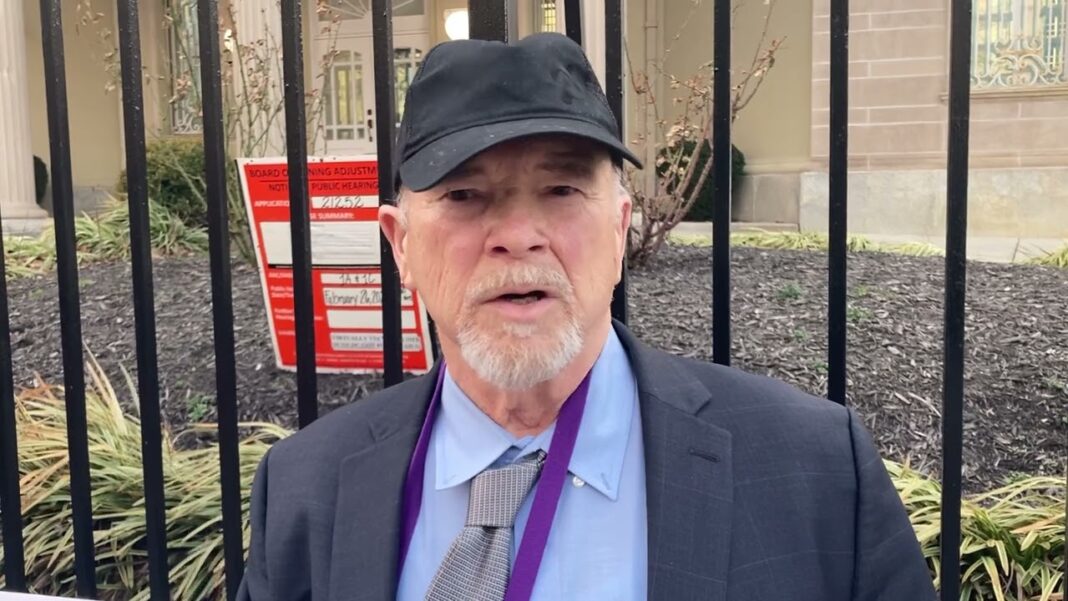Douglass Mackey was previously found guilty of conspiring against the right to vote.
A federal appeals court on July 9 overturned the conviction of Douglass Mackey, who was found guilty of conspiring to interfere with citizens’ right to vote by posting a meme online.
The evidence against Douglass Mackey is insufficient to prove he knowingly conspired to interfere with the right to vote, according to a panel of the U.S. Court of Appeals for the Second Circuit.
The statute in question prohibits conspiracies between two or more persons.
“The mere fact that Mackey posted the memes, even assuming that he did so with the intent to injure other citizens in the exercise of their right to vote, is not enough, standing alone, to prove a violation of Section 241. The government was obligated to show that Mackey knowingly entered into an agreement with other people to pursue that objective. This the government failed to do,” Circuit Judge Debra Ann Livingston wrote for the unanimous panel.
A Department of Justice spokesperson declined in an email to The Epoch Times to comment on the decision.
Mackey celebrated the ruling, writing on social media platform X, “I would like to thank God, thank my family, thank my beautiful wife, attorney Andrew Frisch, the incredible attorneys at Jones Day, and you—the friends who prayed and donated and spread the word since day one.”
Mackey posted or shared several memes on social media platform Twitter, now known as X, ahead of the 2016 presidential election that targeted supporters of Hillary Clinton, the Democratic presidential candidate. The memes encouraged the supporters to vote via text or on social media. Neither of those methods is legally valid.
Prosecutors said Mackey spread disinformation and infringed on the right to vote, while defense lawyers argued that the memes were jokes that were protected by the First Amendment.
Following a jury trial in 2023, Mackey was convicted on one count of violating 18 U.S.C. § 241, which criminalizes conspiracy to “injure, oppress, threaten, or intimidate any person … in the free exercise or enjoyment of any right or privilege secured to him by the Constitution or laws of the United States, or because of his having so exercised the same.”
A judge sentenced Mackey later that year to seven months in jail.
In his appeal, Mackey said there was not sufficient evidence to prove he violated the law.
“The Government did not adduce any evidence that Mackey’s tweets were in furtherance of a criminal conspiracy,” his lawyers said in a brief to the appeals court. “While the indictment alleged that he conspired with members of Twitter chat groups, the evidence was undisputed that he found the memes on an internet message board and posted them without coordination. Even if the tweets could be characterized as “injuring” citizens in the exercise of their right to vote, Mackey was not part of any conspiracy and therefore did not violate § 241.”
Department of Justice lawyers urged the court to uphold the conviction, writing that it was a “straightforward application” of the statute.
“Mackey’s central argument is rather that when he, to all appearances, acted in lockstep with the members of the conspiracy, he was actually acting alone, and acting with innocent intent,” they said in a brief. “The jury rejected this precise argument at trial for good reason, and, given the posture of this review—with all inferences drawn in favor of the government—the jury’s verdict must be affirmed.”
The Second Circuit judges sided with Mackey.
The government’s primary evidence, apart from the memes, “consisted of exchanges among the participants in several private Twitter message groups—exchanges the government argued showed the intent of the participants to interfere with others’ exercise of their right to vote,” Livingston wrote. “Yet the government failed to offer sufficient evidence that Mackey even viewed—let alone participated in—any of these exchanges. And in the absence of such evidence, the government’s remaining circumstantial evidence cannot alone establish Mackey’s knowing agreement. Accordingly, the jury’s verdict and the resulting judgment of conviction must be set aside.”
The Second Circuit reversed Mackey’s conviction and sent the case back to the U.S. district judge who sentenced Mackey with orders to enter an acquittal.







